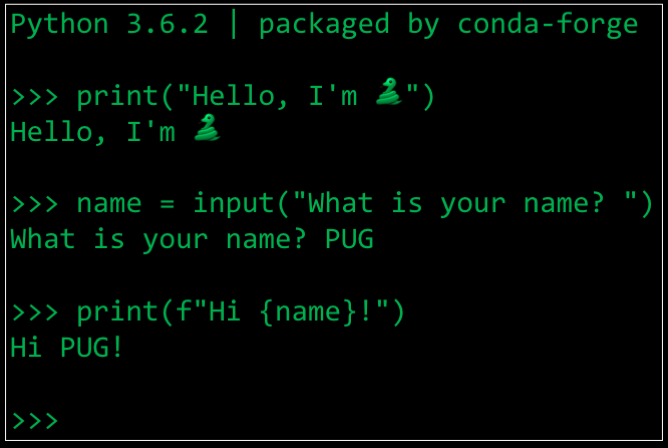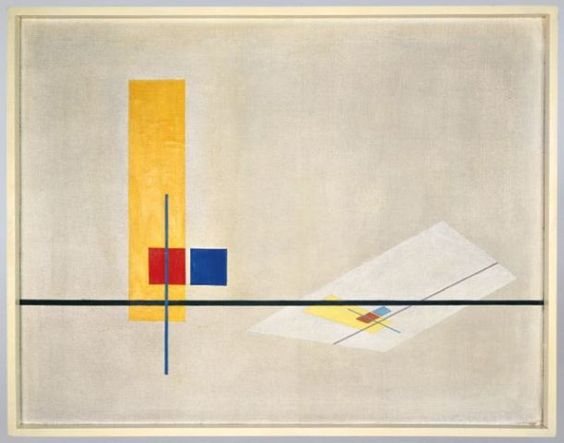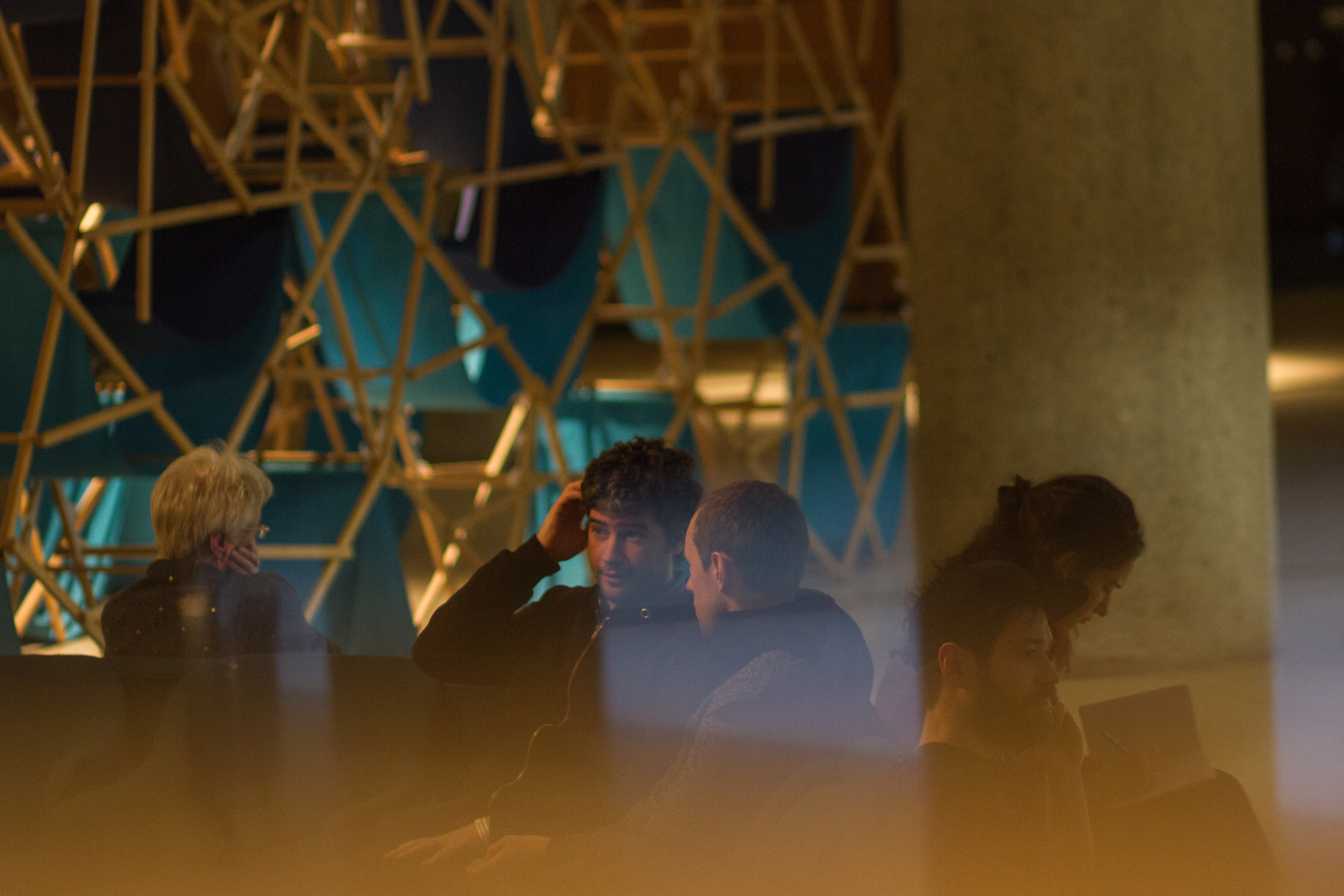
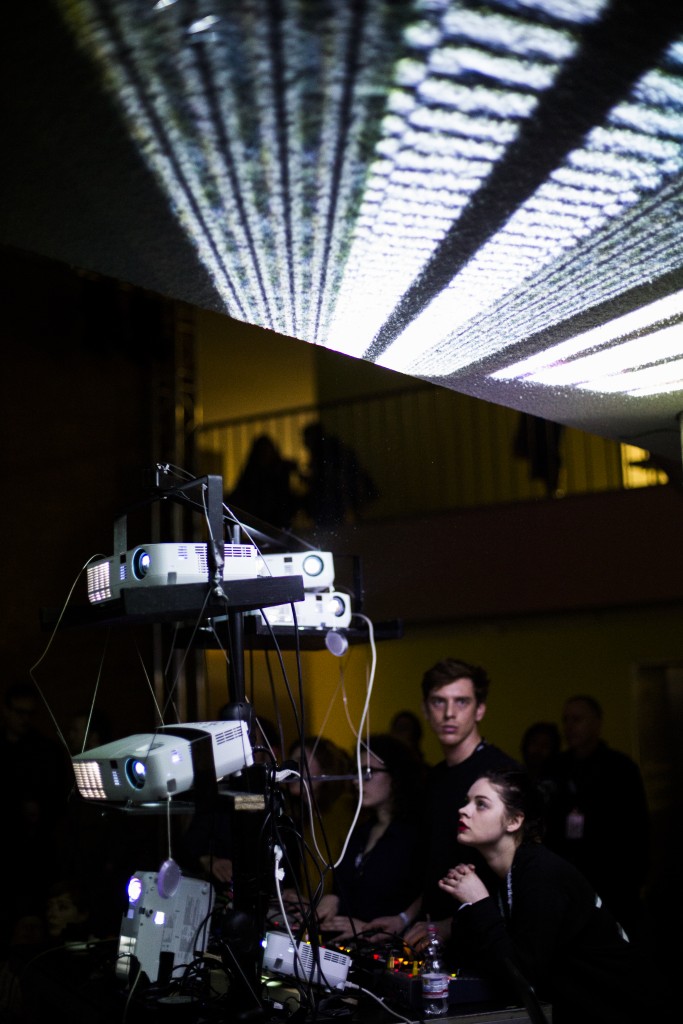 I recently attended the Transmediale: Festival for Media Art and Digital Culture at the beautiful Haus Der Kulturen Der Welt in Berlin, which rather than a traditional single-themed disciplinary conference, organized a series of interdisciplinary conversations into four thematic streams. Those four conversation streams each focused on a psychological anxiety arising in regard to changes occurring in the ways in which human being communicate with and understand each other as a result of our post-digital culture. These four streams: anxious to make, anxious to share, anxious to secure, and anxious to act, represent almost clichés of post-digital cultures. Organizers and participants had a challenge to represent the complexity and ambiguity of the topics at hand, especially at a time when the saturation of the digital into everyday life prompts the director of the Transmediale, Kristoffer Gansing, to ask himself: “How do you make a digital festival when almost every institution is affected by digitization?” This is indeed a large undertaking, as human cultures, and consequently, our social and individual psychologies, are altered as the constraints and affordances of different technologies impact the ways we are able to know and interact with ourselves and others.
I recently attended the Transmediale: Festival for Media Art and Digital Culture at the beautiful Haus Der Kulturen Der Welt in Berlin, which rather than a traditional single-themed disciplinary conference, organized a series of interdisciplinary conversations into four thematic streams. Those four conversation streams each focused on a psychological anxiety arising in regard to changes occurring in the ways in which human being communicate with and understand each other as a result of our post-digital culture. These four streams: anxious to make, anxious to share, anxious to secure, and anxious to act, represent almost clichés of post-digital cultures. Organizers and participants had a challenge to represent the complexity and ambiguity of the topics at hand, especially at a time when the saturation of the digital into everyday life prompts the director of the Transmediale, Kristoffer Gansing, to ask himself: “How do you make a digital festival when almost every institution is affected by digitization?” This is indeed a large undertaking, as human cultures, and consequently, our social and individual psychologies, are altered as the constraints and affordances of different technologies impact the ways we are able to know and interact with ourselves and others.
I found the focus on the psychological dynamics of digital technology fascinating (I am, after all, a social psychologist) and a useful complement to the 2015 Transmediale which focused on the physical / material manifestations of the internet; such as server rooms, the logistics industry, labor structures, and even undersea cables (the topic of a recent GCDI / CUNY DHI talk featuring Nicole Starosielski). The focus on psychological dynamics is a step toward further examining an understudied aspect of our historical present, and the use of typologies of anxiety to organize the thematic streams is fitting as anxiety disorders are now the most common kind of mental health problems worldwide.
The interest in affective states reminded me of Wendy Chun’s profound talk at the Graduate Center last semester, which touched on the “wonderful creepiness” of new media, and I took as an inspiring call for those of us interested in the social and psychological aspects of digital culture to investigate the phenomenology of digital experiences today.
The far-reaching and dynamic conversations that emerged from Transmediale 2016’s hybrid events have spurred me to think more about shifting dimensions of the social and psychological in my own research. If you’re interested in continuing conversations, a series of reflections have been posted on the Transmediale blog, and many recordings of events are available in their audio archive (including a keynote conversation between Hito Steyerl and Nicholas Mirzoeff which I found to be a particular highlight).
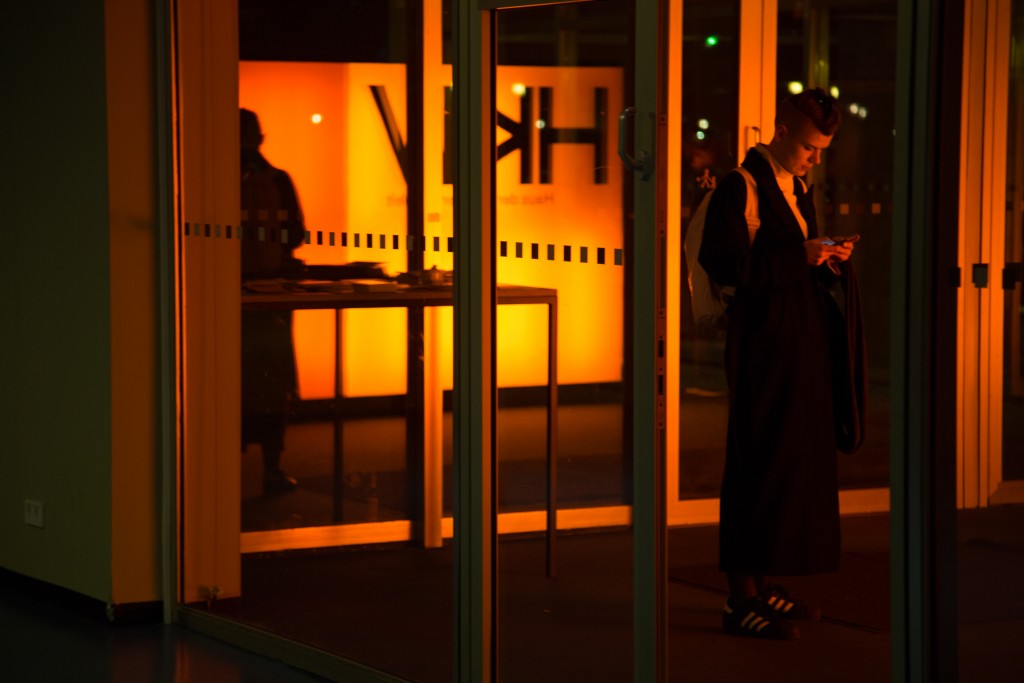
All photos Creative Commons via Transmediale on Flickr
